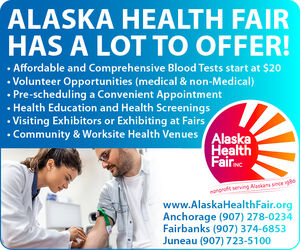Big changes will affect SNAP (Food Stamps) and Medicaid
April 1, 2022 | View PDF
The approaching spring is bringing changes not only to Alaskan landscapes, but also to the public benefits many elderly and disabled Alaskans receive. Some of these changes have already occurred, creating substantial impact on the benefits’ recipients. Others will take place with the end of the public health emergency, currently anticipated in mid-April.
More people are entitled to SNAP (Food Stamps) than those currently receiving the benefit
Many elderly and disabled live with their relatives, which, in turn, has a substantial impact on their ability to receive SNAP benefits, more commonly known as Food Stamps. Generally, if the individuals live together and customarily purchase food and prepare meals together, all of their incomes are considered for SNAP eligibility and amount. If, however, a person is 60 or over and unable to purchase food and prepare meals because of disability, that person should be considered separately in making SNAP eligibility decisions.
For example, if an elderly and disabled person lives with their adult child, only the disabled person’s income should be considered for SNAP purposes to determine the disabled person’s eligibility. Recently, the Superior Court in Juneau broadened what “unable to purchase food and prepare meals” means. The court noted that nothing in the law indicates an intent to restrict the benefits to the most severely disabled individuals. The court concluded that a disabled person who participates in shopping and meal preparation with others’ assistance is not necessarily able to do these tasks on their own and, therefore, their income should be counted separately from those who live with them. This decision created a substantial shift in the way the State Division of Public Assistance has historically interpreted the provision regarding ability to prepare meals. The decision will have a sizable positive impact on the most vulnerable Alaskans - elderly and disabled. It means that many more of the vulnerable Alaskans may be entitled to SNAP, even though they are currently not receiving it. It also may mean a substantially higher amount of SNAP to the current recipients.
Medicaid: What does the end of the Public Health Emergency mean to recipients?
The anticipated end-date for federally-declared public health emergency is currently set for mid-April. During the public health emergency, virtually all Medicaid terminations have been suspended. Thus, irrespective of whether a person suddenly started to get more income or received even very sizable resources, they were still receiving Medicaid benefits during the public health emergency. With the emergency coming to an end, it is anticipated that the agency will start re- determining eligibility for Medicaid, which could result in a significant number of people’s benefits being terminated. This, in turn, could have an enormous impact on the most vulnerable.
For example, if you started to receive pension or survivor benefits for a spouse that passed away during the pandemic, your income may have increased beyond the Medicaid eligibility limits, and your benefits may be terminated following the lift of the public health emergency. Similarly, if you suddenly came into an inheritance or to a lawsuit settlement during the pandemic and your benefits were not affected during pandemic, this may change soon. In many cases, especially when there is a change in income, these terminations can be avoided. We, at Alaska Legal Services are gearing up for the anticipated influx of people with Medicaid terminations. If you think you may be in such a situation, please do not wait till the last moment to seek help, as there are proactive steps you can take now to avoid losing your benefits.
Medicaid restrictions under new Care Management regulations
There has been a substantial change in the way the State Division of Heath Care Services (Division) assesses Medicaid recipients’ use of medical services to restrict their access to medical care, called Care Management. Generally, if a person is placed in Care Management, the person can only access a set general provider and pharmacy chosen by the division, which is unlikely to be their current primary provider and pharmacy.
Care Management has always been a rather murky area. Starting January 2021, this became even more obscure. Generally, Medicaid recipients have a free choice of their medical providers and pharmacies. Yet, under certain circumstances, Medicaid allows restriction of that choice - Care Management. Here are some of the examples of what currently may trigger Care Management: during a period of three consecutive months, receiving prescription drugs from three or more pharmacy locations; or during a period of three consecutive months, using a medical item or service with a frequency that exceeds two standard deviations from average. Prior to January 2021, in all cases triggering Care Management, the division had to do a clinical review of the recipient’s medical history. Only if this review resulted in a determination that the use was not medically necessary could the division place the recipient in Care Management and only up to 12 months.
The new regulations, effective January 2021, have dispensed with the individualized clinical review for individuals falling into certain categories. Moreover, the Care Management restrictions can now go on for up to 36 months. In practical terms, what these changes seem to mean is that under some circumstances Medicaid recipients could face notice of restrictions based simply on a computer-generated algorithm regardless of whether the use in their particular circumstance was medically necessary.
All of the Medicaid recipients should know that the division must provide proper notice to the recipient explaining why the restriction is appropriate before it places the restriction. Division’s mere citations to the regulations that authorize Care Management do not qualify as proper notice. Rather, the notice must provide a meaningful explanation of what exactly did the recipient do to warrant the restriction. Improper notice and medical necessity are just some of the basis on which the proposed restriction could be challenged at a fair hearing.
Over a year has passed since the new regulations became effective allowing division’s collection of sufficient statistical data to start issuing notices. Given this, Alaska Legal Services Corporation anticipates that more and more Medicaid recipients will be placed in Care Management in the very near future. If you or your loved one received such a notice, know that you have the right to ask for a fair hearing to challenge the restriction. The fair hearing must generally be requested within 30 days of the notice. As Care Management will likely result in your inability to access your primary doctor or pharmacy for up to three years, timely requesting a fair hearing may be paramount.
We encourage everyone who needs legal assistance with SNAP or Medicaid to contact us and apply for our services - we provide free legal help to those who need it most. Our statewide intake line is 1-888-478-2572.
Eva Khadjinova is a Senior Services Attorney for Alaska Legal Services Corporation.











